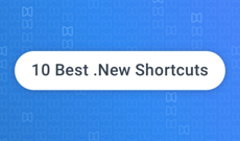Project management software helps organize and manage a workflow of a team collaborating on a project. Such a tool lets you assign and reassign tasks, track progress and deadlines, collaborate on tasks and documents, analyze the team's performance, and much more. It can be useful for small teams as well as huge corporations and even multiple different teams that need to cooperate on a project.
Nowadays, when many companies work remotely and teams are scattered all around the globe, project management platforms have become an essential factor that can hold everything together and deliver the best results. Below is the list of the PM tools that we’ll be talking about. Hopefully, our article will help you choose the one that fits your needs.
 1. Asana
1. Asana
Asana is a web and mobile work management platform designed to help organize, track, and manage your work. Teams can create projects, assign work to teammates, specify deadlines, and communicate about tasks directly in Asana. It also includes reporting tools, file attachments, calendars, and setting and tracking company-wide goals.
Key features:
- Flexibility—fine-tune Asana to your liking and use it in a completely unique way or choose a ready project view that suits your style with 50+ templates that Asana provides.
- Convenient timeline view—you can see how work maps out over time. Manage dependent, overlapping, and unscheduled tasks, and create plans your team can count on.
- Visual reporting—Asana allows you to manage your team's progress and workload. Get real-time charts and other visual highlights to share status, spot potential problems, and keep work on track.
Pricing: Asana has a free Basic plan (it lacks some of the features but still gives you a good understanding of how Asana works), paid plans start at €13.49/month.

2. FlippingBook
FlippingBook is professional software for converting PDFs into interactive digital flipbooks, brochures, magazines, catalogs, and newsletters with a page flip effect. Although it’s not project management software in the traditional sense, it helps teams collaborate in the most efficient way and streamline their marketing and sales process. Especially if you work with all kinds of documents. With FlippingBook, you can create flipbooks in your private workspace and then work on the content together with your team in shared folders, thus having everything you need right at hand. Plus, you can integrate other tools like Zapier and Canva for smoother workflows.
Key features:
- Private workspace for each team member—you can create flipbooks comfortably without worrying that anyone sees them before they’re ready. Give your content the best look with your branding and design, engaging videos and images, and outbound links—and then share it with your teammates to fine-tune it together.
- Private and shared folders for easy team collaboration—create different shared folders for each team or project. Everyone across your team will be able to contribute quality content to the folder, so you all will have engaging flipbooks at your disposal for successful sales or powerful marketing.
- Personal email notifications about your audience’s interactions with your content—you can make the link to your document trackable and send it to a lead. You’ll get an email notification right when the lead opens your document. Each team member will receive notifications about such trackable individual links in their inbox, so there’s no confusion which one of your teammates should send that follow-up.
- Multiple domains for your projects and teams—your flipbooks are available to clients as direct links, and custom domains allow you to customize those links. Set up several custom domains for each of your projects or each team with your company’s name in the link. Create separate domains for your sales and marketing teams, or distinguish between catalogs, brochures, and newsletters.
Pricing: FlippingBook offers a free 14-day trial, and you don’t need a credit card to sign up. The pricing starts at $26/month and the Team plan is available at $342/month and includes all the essential features, such as shared team folders, custom domain, tracked sharing, advanced analytics, and more.
 3. Jira
3. Jira
Jira is cross-platform issue and bug tracking software with advanced agile project management capabilities and features. It’s designed for software development teams, making it the perfect IT project management tool.
Key features:
- Powerful agile boards—you can use scrum boards to break large, complex projects into manageable pieces of work or kanban boards to visualize your workflow, limit work-in-progress, and maximize efficiency as a team.
- Roadmaps—keep your teams in sync with roadmaps. Full visibility gives teams the context needed to make quick decisions while staying aligned with the bigger goals.
- See code and deployment status—you can view and create branches, pull requests, and view commits right inside the Jira issue development panel.
Pricing: Jira has a free plan (limited to 10 users), paid plans start at $75/month.
 4. ProofHub
4. ProofHub
ProofHub is the ultimate all-in-one solution for project management and team collaboration. Whether you're working from the office or remotely, ProofHub's real-time communication and collaboration tools ensure seamless interaction, feedback, and task completion. With ProofHub, you get everything you need in one place, streamlining your entire work process for maximum efficiency.
Key features:
- Plan your work—You can plan and manage your projects, add custom tags, assign priorities, and tag multiple team members to a task.
- Connect with the team in no time—If you need to make a change to a task, you can easily communicate your message, file, or idea to your team members and complete the work using ProofHub's project discussion section or one-on-one chat.
- Stay ahead of deadlines—You can keep track of your progress with timesheets and automatic time monitoring. Furthermore, real-time project tracking allows you to plan your risks ahead of time, allowing you to meet your deadlines.
Pricing: ProofHub has a 14-day free trial. Paid plans start at $45/month.
 5. Trello
5. Trello
Trello is a visual tool that empowers your team to manage any type of project, workflow, or task tracking. Add files, checklists, or even automation and customize Trello for how your team works best. The selling points of this kanban board app are its ease of use and ability to facilitate collaboration with internal and external teams alike.
Key features:
- Ready templates—no more starting from scratch. You can give your team a blueprint for success with ready templates from the Trello community. Copy, customize, and you’ll be collaborating in no time.
- Trello cards—cards are a space where every single part of your task can be managed, tracked, and shared with teammates. Open any card to uncover an ecosystem of checklists, due dates, attachments, conversations, and more.
- Automation—with Trello’s built-in automation, Butler, you can automate the tasks across your entire team: automate common actions like moving lists, surface upcoming deadlines to the team, schedule teammate assignments, and more.
Pricing: Trello has a free plan (up to 10 boards per Workspace), paid plans start at $5/month.
 6. Wrike
6. Wrike
Wrike is cloud-based project management software that simplifies project planning, helps track your work, monitor deadlines, and collaborate easily with your team. It offers a lot of advanced features like task management, Gantt Charts, a real-time newsfeed, and more.
Key features:
- Easy customization—you can customize the Wrike features you need to streamline your intake, schedule projects, and see priorities clearly. Choose interactive Gantt charts, kanban boards, or purpose-built templates.
- Custom request forms—simplify your intake with custom request forms that gather details and auto-create and auto-assign tasks to the right teams. Branch questions and route requests dynamically based on the rules you create, giving your team all the info they need without having to ask again.
- Wrike’s Work Intelligence™—AI from Wrike lets you accelerate results through smart automation and project risk prediction. Use advanced communication tools such as voice commands, smart replies, and document processing.
Pricing: Wrike has a free plan (up to 5 users), paid plans start at $9.80/month.
 7. Zoho Projects
7. Zoho Projects
Zoho Projects is project management software that comes with features such as Gantt charts to plan projects, Kanban boards to organize work items, resource utilization charts to allocate work, and numerous dashboards, reports, and charts to analyze and track project metrics.
Key features:
- Suite of communications tools—Zoho offers you an interactive feed, built-in chats for creating personal or group chat rooms to have a conversation and make important decisions together; forums for lengthier posts and discussions; and documents for creating and sharing files, collaborating over documents and spreadsheets, and building beautiful presentations).
- Blueprints—you can automate the necessary but mundane tasks using Blueprints from Zoho. Set up task statuses, identify the people responsible for each stage, and make sure the right process is always followed.
- Timesheets—every project has a timesheet where the team members can log their task hours. These records help keep track of the pace of your project and identify bottlenecks accurately.
Pricing: Zoho has a 10-day free trial and a free plan up to 3 users. Paid plans start at $59/month.
 8. Teamwork
8. Teamwork
Teamwork is a project management platform designed for companies to freely plan, track, manage, and deliver various complex projects. It also integrates seamlessly with Teamwork.com’s other two products: Teamwork Desk and Teamwork Chat. Plus, Teamwork gives you a ton of features specific to running a client- or service-based business.
Key features:
- Built-in invoicing—never miss a billable hour by tracking and logging billable time directly from Teamwork. Export invoices to your accounting system using integrations like Quickbooks, Xero, or Harvest to make sure the invoices get paid.
- Unlimited team collaboration—you can get unlimited client and collaborator accounts for free, an excellent and required feature for service- or client-based businesses. Your contractors and clients can only work on the projects you invite them to. And not only that—you can also set permissions for each type of role.
- Project planning—Teamwork lets you easily visualize your timelines, break down the projects into milestones and tasks, and manage risks and available resources.
Pricing: Teamwork has a 30-day free trial and a free plan for up to 5 users. Paid plans start at $12.5/month.
You can also explore Teamwork alternatives and compare features, pricing, and key differences to make the best choice.
.png) 9. Plaky
9. Plaky
Plaky is free project management software with an unlimited number of users, projects, and files you can add to your tasks. You can use it for marketing, sales, development, HR processes, or anything else you need. What’s more — you don’t have to start from scratch, as Plaky offers a variety of customizable board templates you can adjust to suit your needs.
Key features:
- Unlimited number of users and projects—You don’t have to worry about the limit of projects or users ever again.
- Unlimited numbers of files—Share ideas or explain complex problems to your teammates by adding as many files as you need to your tasks.
- Ready-made templates—Choose from various board templates applicable to all sorts of business.
Pricing: Plaky has a free plan for an unlimited number of users and projects.
That’s it! Now you have a list of various tools for project management, we hope you’ll find the one that suits you best.





